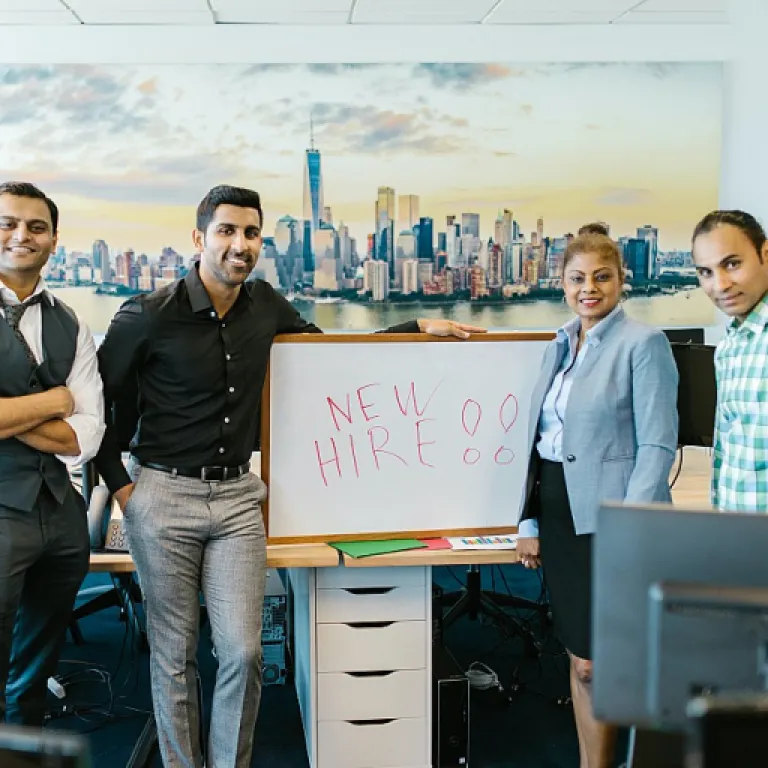
Understanding the Role of Salesforce Developers
Delving into the Dynamic Role of Salesforce Developers
Understanding the role of Salesforce developers is pivotal when embarking on the hiring journey for your business. With Salesforce as a predominant CRM platform, developers in this field play a critical role in customizing its functionality to cater to unique organizational needs. Salesforce developers have a diverse set of responsibilities, which include designing, coding, and implementing Lightning Web components and custom applications. Their expertise extends to tailoring the Salesforce Platform for seamless integration with other solutions and services that your business may rely upon. When you set out to hire salesforce talent, consider the developers adept in data management within the CRM system, particularly those with considerable years of experience and agile development skills. Exposure to Salesforce clouds, such as service and health cloud, can signify a comprehensive understanding of creating robust, customer-centric experiences. Moreover, beyond the technical acumen, Salesforce experts should exhibit soft skills like effective communication and problem-solving capabilities. These attributes are indispensable for collaborating with sales, development, and third-party teams while delivering sustainable Salesforce consulting solutions. For a deeper dive into specific job responsibilities and crafting a well-rounded job description, explore this comprehensive resource that can enhance your hiring strategy.Crafting a Compelling Job Description
Crafting a Job Description to Attract the Right Talent
Creating a compelling job description is essential when looking to hire Salesforce developers. It’s your first opportunity to showcase what your business offers potential candidates and attract the right salesforce experts. Begin by detailing the primary responsibilities and expectations of the role. This should include any custom applications or cloud solutions the salesforce developer will be working with. Be specific about whether the role will involve working with key aspects of the Salesforce platform, such as the Lightning web components, Service Cloud, or Health Cloud. Emphasize Required Technical Skills:- Proficiency in Salesforce development, especially on the Salesforce platform
- Experience with Lightning web components and custom applications
- Knowledge of Sales and Service Cloud products
- Understanding of CRM solutions
- Several years experience in Salesforce development
- Salesforce certified developers can be beneficial
- Ability to integrate third-party services
- Proven experience in salesforce consulting or development
Sourcing Candidates: Where to Look
Finding Qualified Salesforce Developers
When you're focusing on hiring skilled Salesforce developers, it's crucial to know where to find them to match your business and development needs. Here are some effective strategies:
- Professional Networks: Utilize platforms such as LinkedIn, where Salesforce groups are platform developer-rich locations to identify and engage with potential salesforce talent. Networking in these communities can provide insights into qualified candidates with the necessary skills and experience.
- Salesforce-Specific Job Boards: Websites like SalesforceBen or the Salesforce AppExchange can be useful in accessing a pool of skilled salesforce developers. Posting a well-crafted job description here can attract certified salesforce experts.
- Third-Party Agencies: Consider collaborating with specialist recruiting firms or salesforce consulting services. These agencies often have access to a wide range of potential candidates with years of experience working across various Salesforce cloud environments such as Service Cloud or Health Cloud.
- Salesforce Events: Attend Salesforce conferences and events, either physically or virtually. These gatherings are cornerstone opportunities to meet developers who are already engaged with the platform, highlighting salesforce experience and interest in Salesforce development.
- Referrals: Leverage internal networks and existing team members. Employees already working with the salesforce platform may refer connections with the right mix of soft skills and technical prowess required for your business.
If you're delving into talent acquisition strategies, understanding lateral transfers in the workplace can provide valuable insights when sourcing candidates from within your current organization, enhancing your overall hiring experience.
Evaluating Technical Skills and Experience
Assessing Proficiency in Salesforce Expertise
When you're on the brink of hiring Salesforce developers, it’s crucial to accurately gauge their technical skills and experience. This evaluation ensures you are enlisting the right professionals for your specific business needs and CRM objectives. Here are some pivotal aspects to consider:- Years of Experience and Certifications: Determine the developer’s years of experience with the Salesforce platform, including any certifications they possess, such as Certified Salesforce Developer or Platform Developer I & II. These qualifications demonstrate a solid understanding of Salesforce development and cloud solutions.
- Technical Skills Assessment: Conduct a thorough technical review to evaluate their experience in working with different Salesforce clouds like Service Cloud, Health Cloud, and their ability to build custom applications using Lightning Web Components. Their familiarity with Salesforce consulting and development tools can be a distinguishing factor.
- Problem-Solving and Project Management: Assess their capability to provide Salesforce solutions for complex business scenarios. Skills in project management and the ability to navigate the Salesforce ecosystem effectively will be valuable.
- Soft Skills: While technical expertise is paramount, soft skills—such as communication and teamwork—are equally essential for seamlessly integrating into your business team.
- Practical Scenario Testing: Use practical tests to simulate real-world scenarios that Salesforce developers might face. This could involve tasks related to Salesforce platform management, integration, and cloud software solutions.
Conducting Effective Interviews
Mastering the Interview Process with Salesforce Developers
Conducting interviews is a crucial step in the hiring process, guiding you to select the right Salesforce developers who will fit seamlessly into your business's unique ecosystem. The interview stage should be more than just assessing technical skills; it should also explore how candidates align with your company's mission and values. Here's how to approach interviews with potential Salesforce talent:- Prepare Relevant Questions: Tailor your questions to assess specific Salesforce skills and experience, such as the candidate's familiarity with Lightning Web Components, CRM solutions, or the Salesforce Platform. Consider asking scenario-based questions to gauge their problem-solving abilities and how they apply their expertise in real-world situations, whether it's for Salesforce development, Sales, or Service Cloud.
- Assess Soft Skills: Beyond technical capabilities, soft skills like communication, teamwork, and leadership are vital. Gauge how well candidates can collaborate within a team setting, engage with customers for Salesforce consulting, or adapt to the dynamic environment of the cloud business.
- Evaluate Cultural Fit: Determine if their work style and values align with your company's culture. This is essential for long-term retention, especially when hiring Salesforce developers tasked with creating custom applications and driving platform development.
- Use Practical Tests: Consider practical assessments or coding challenges to evaluate a candidate's proficiency with Salesforce development tools and platforms. This approach can help confirm they have the depth of experience—be it in Health Cloud, Service Cloud, or any other Salesforce domain—you are seeking.
- Get Feedback from Team Members: Involve current team members in the interview process to gain diverse perspectives on the candidate’s potential as a fit within your existing developer community. An external viewpoint can help uncover strengths or weaknesses you might not immediately see.
Onboarding and Retaining Top Talent
Integrating New Salesforce Developers into Your Team
Successfully onboarding and retaining top talent involves more than just extending an offer and completing paperwork. It’s about creating a welcoming environment that encourages growth and engagement. Start by ensuring the new Salesforce developers clearly understand their role and the expectations set during the hiring process. This clarity helps anchor them in your business goals from the outset.
An effective onboarding process is key:
- Orientation Program: Initiate with a comprehensive orientation program. Introduce the new hires to the team, the company culture, and the Salesforce platform within your CRM environment.
- Training: Provide targeted training on necessary technical skills and any specific salesforce solutions or custom applications you use. Consider including sessions on key aspects such as customer service and service cloud, which enhance their ability to provide exceptional support.
- Mentorship: Pair new developers with a mentor from your experienced Salesforce developers or salesforce consulting team. This support can significantly improve their integration into your workflow and team culture.
Implement ongoing feedback systems to help Salesforce developers feel heard and valued. Regular performance reviews and career development talks can align individual ambitions with company goals, leading to a positive working environment.
Retention extends beyond onboarding. Cultivate career growth by investing in continual learning opportunities. Encourage participation in lightning web workshops, certified Salesforce training, and cloud strategy discussions. A commitment to enhancing their Salesforce experience not only boosts engagement but also nurtures salesforce experts who can innovate and drive business growth.
A winning combination of strategic onboarding and career development is essential for nurturing long-term relationships with your Salesforce talent. Your investment in people will reflect positively, benefiting both your business and your clients.













